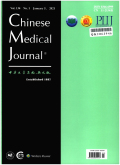中华医学杂志(英文版)2024,Vol.137Issue(7):762-775,14.DOI:10.1097/CM9.0000000000002989
Metabolic plasticity of T cell fate decision
Metabolic plasticity of T cell fate decision
摘要
关键词
T cell immunotherapy/T cell differentiation/T cell exhaustion/Metabolic reprogramming/Tumor microenvironmentKey words
T cell immunotherapy/T cell differentiation/T cell exhaustion/Metabolic reprogramming/Tumor microenvironment引用本文复制引用
Xiaoli Pan,Jiajia Wang,Lianjun Zhang,Guideng Li,Bo Huang..Metabolic plasticity of T cell fate decision[J].中华医学杂志(英文版),2024,137(7):762-775,14.基金项目
This work was supported by grants from the National Natural Science Foundation of China(Nos.81788101,82271775,and 81972875),the Chinese Academy of Med-ical Sciences Innovation Fund for Medical Sciences(Nos.2021-I2M-1-021,2021-I2M-1-061,and 2022-I2M-1-047),the Haihe Laboratory of Cell Ecosystem Innovation Fund(No.22HHXBSS00009),and the Natural Science Foundation Outstanding Youth Fund of Jiangsu Province(Nos.BK20220049 and BK20211505). (Nos.81788101,82271775,and 81972875)

